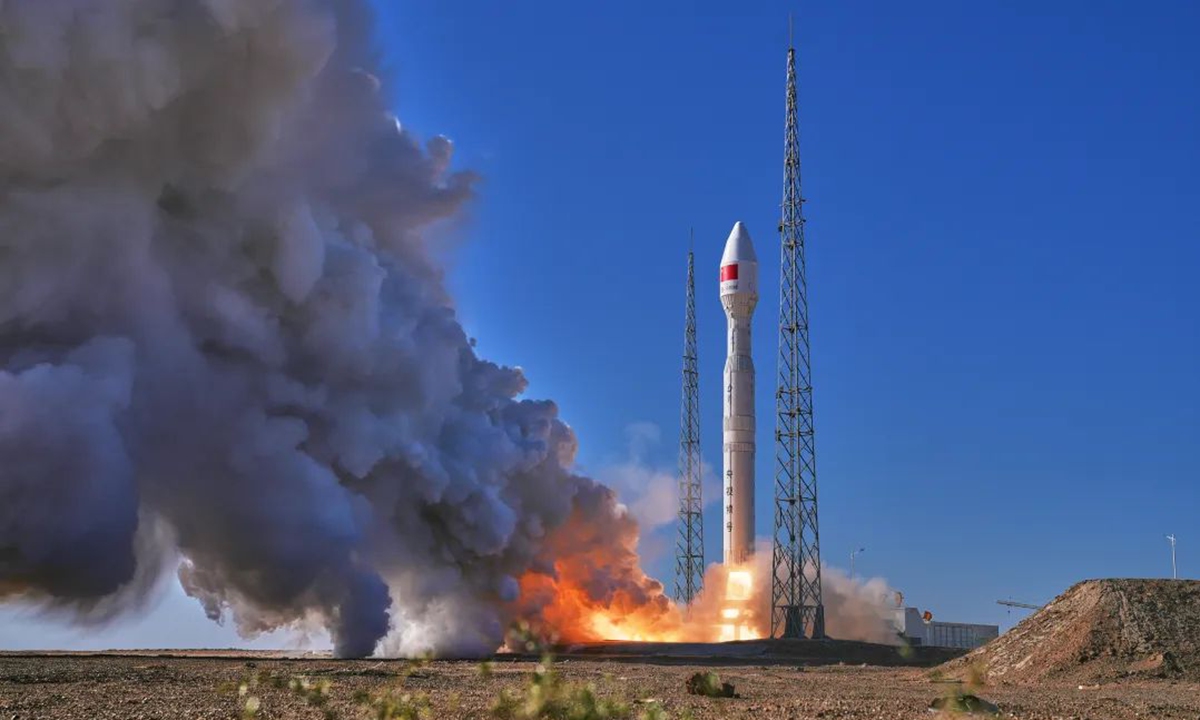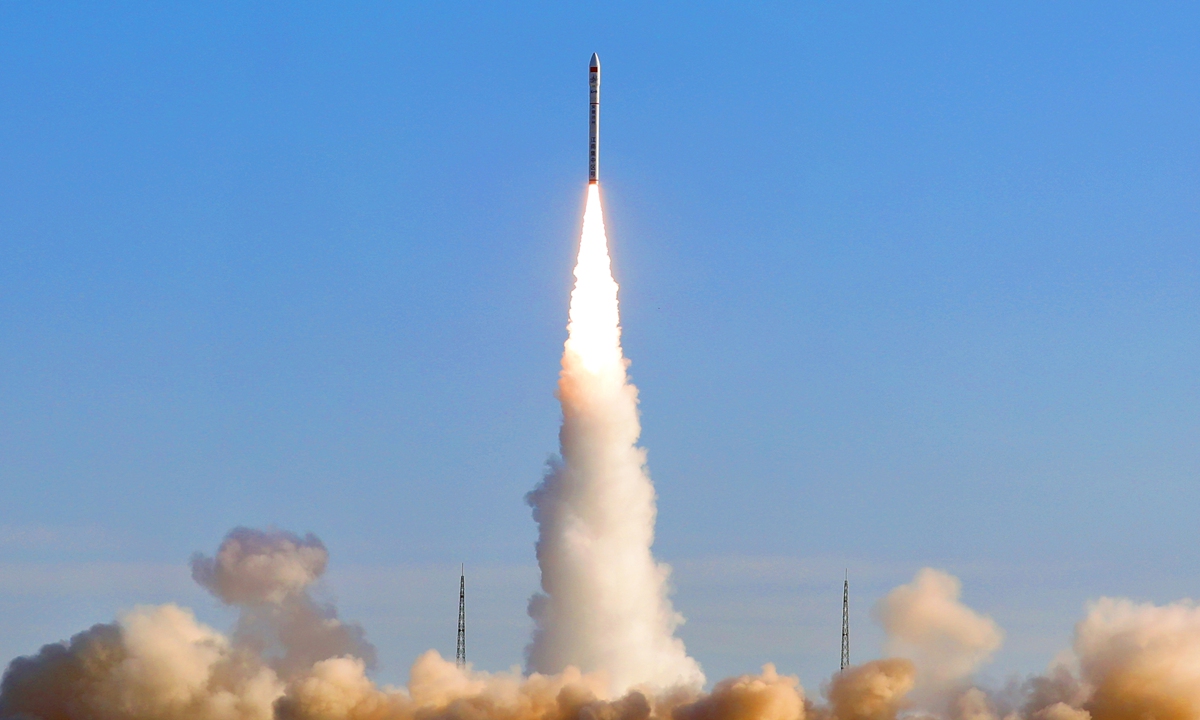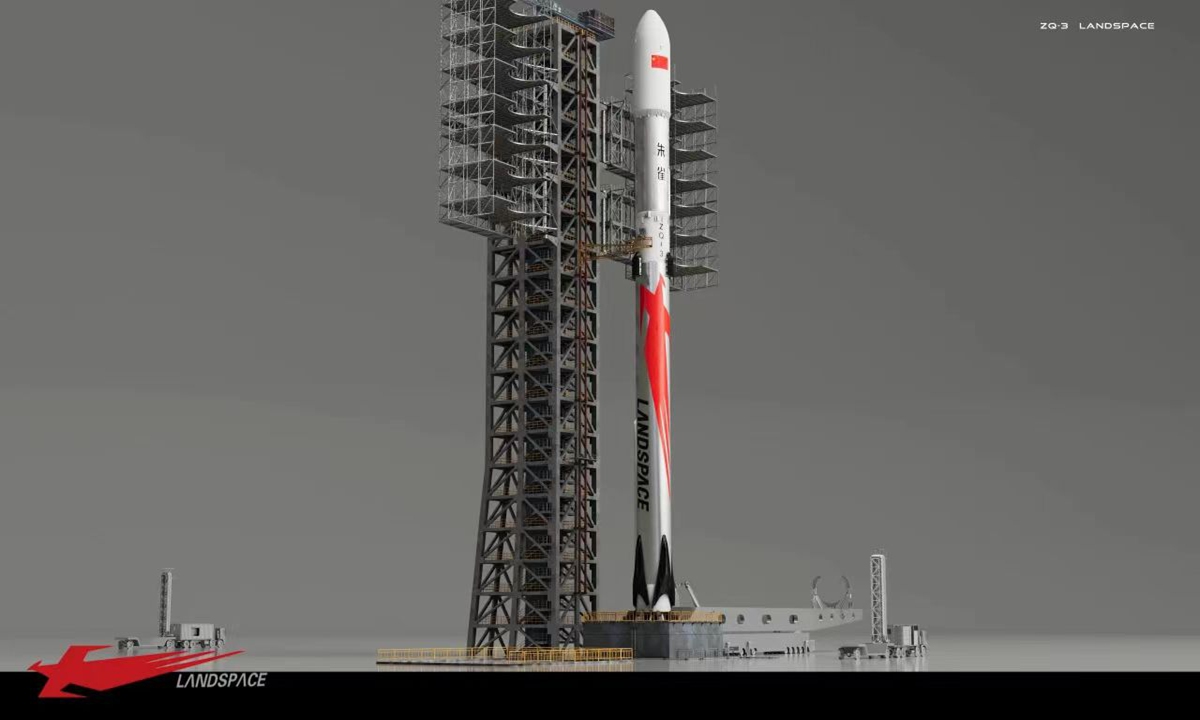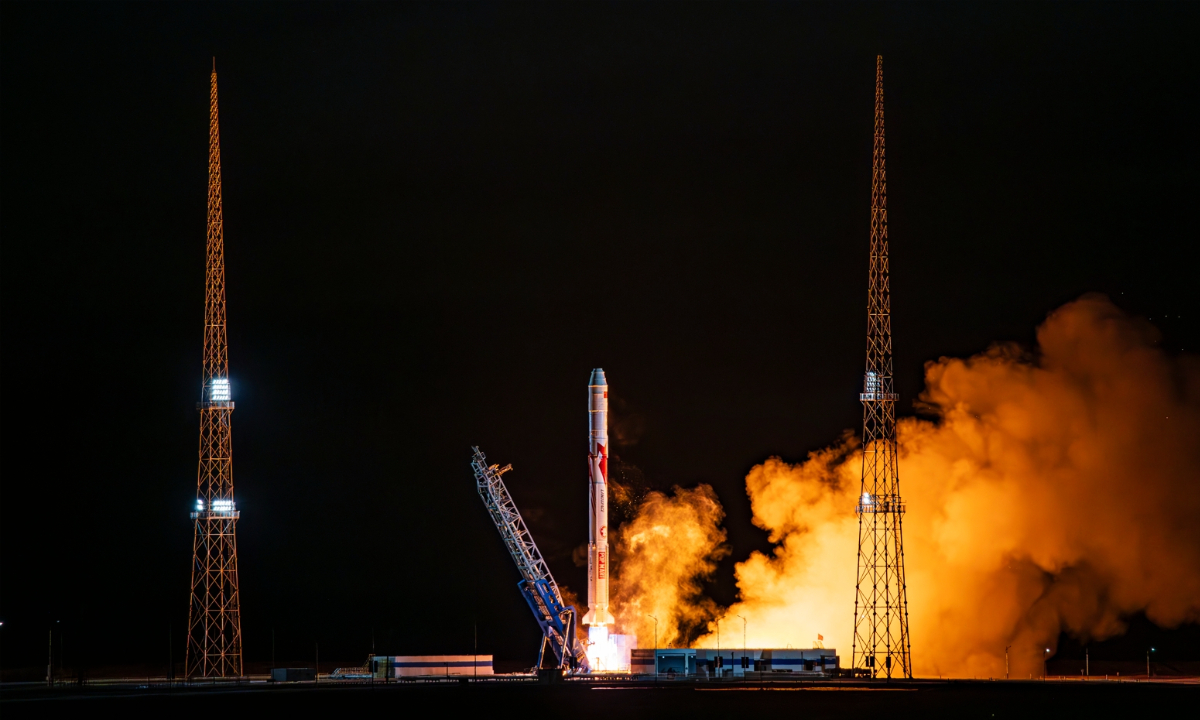China’s commercial rocket firm provides launch service for international client for the first time

Photo: CNS Space
CAS Space, Chinese commercial aerospace company, successfully sent 15 satellites into orbit with its solid rocket Kinetica-1, also known as Lijian-1, on Monday. The flight also deployed an intelligent remote sensing satellite for Omani client, marking the Chinese private rocket firm's first collaboration with international client.
Shi Xiaoning, chief designer for the Kinetica-1, told the Global Times that it only took less than six months from the Omani client's confirmation to launch. The rocket's technical team initiated special procedures to ensure an on-time launch, which is rare internationally.
Oman's satellite represents a key application for an Omani AI company. Equipped with AI computing and a smart operating system, allowing it conduct in-orbit data analyses for land surveys, urban planning, forest monitoring, and disaster assessment, the Global Times learned.
"As a Belt and Road Initiative partner country, the Omani client's choice to collaborate with CAS Space's self-developed Kinetica-1, shows international recognition of the rocket's efficiency and reliability," said Shi, noting that it reflects Oman's determination to strengthen mutual trust and cooperation with China in the field of commercial space.
Speaking of challenges posed by US companies like SpaceX and its Falcon 9, Shi stated that the rapid development of China's commercial space industry has showed increasing competitiveness in the international market.
In 2025, CAS Space plans to debut the liquid propellent carrier rocket Kinetica-2 with larger load capacity to cut costs in space cargo transport and constellation deployment, and will be the main launch vehicle for the Qingzhou cargo spacecraft to China's space station Tiangong, according to Shi.
Li Guoping, chief engineer of the China National Space Administration (CNSA), said on Monday that CNSA is revising its mid- and long-term development plan for China's civil space infrastructure, China Securities Journal reported on Monday.
Efforts will be made to improve access to China's commercial aerospace sector, including strengthening oversight of rocket testing facilities and commercial crewed flight, lifting restrictions on developing satellites over 500 kilograms, and simplifying the commercial launch application process, said Li.



